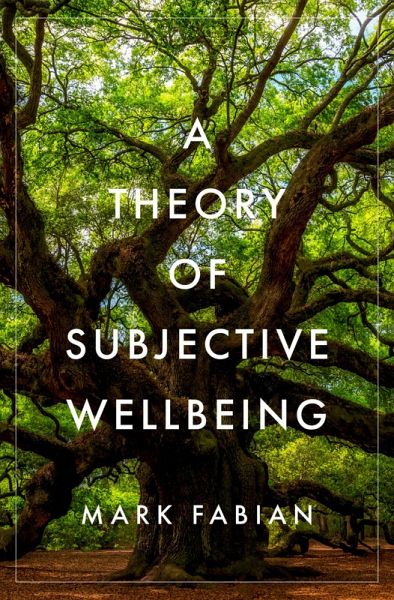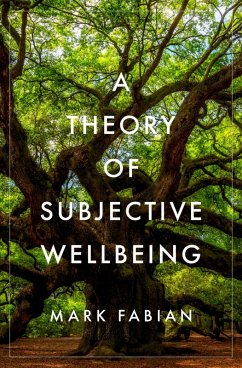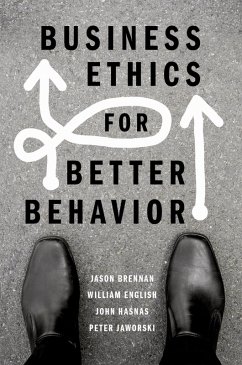
A Theory of Subjective Wellbeing (eBook, ePUB)
Versandkostenfrei!
Sofort per Download lieferbar
30,95 €
inkl. MwSt.
Weitere Ausgaben:

PAYBACK Punkte
15 °P sammeln!
The study of 'subjective wellbeing' has seen explosive growth in recent decades, opening important new discourses in personality and social psychology, happiness economics, and moral philosophy. Now it is moving into the policy domain. In this it has arguably overstepped its limits. The shallow theoretical base of subjective wellbeing research, the limitations of its measurement instruments, and its ethical naivety makes policymaking on the basis of its findings a risky venture. The present volume is an attempt to shore up these weaknesses and set subjective wellbeing scholarship on a course f...
The study of 'subjective wellbeing' has seen explosive growth in recent decades, opening important new discourses in personality and social psychology, happiness economics, and moral philosophy. Now it is moving into the policy domain. In this it has arguably overstepped its limits. The shallow theoretical base of subjective wellbeing research, the limitations of its measurement instruments, and its ethical naivety makes policymaking on the basis of its findings a risky venture. The present volume is an attempt to shore up these weaknesses and set subjective wellbeing scholarship on a course for several more decades of growth and maturity. It presents a theory of subjective wellbeing in two parts. The first is the subjective wellbeing production function-a model of wellbeing as outcome. The second is the coalescence of being: a model of the self-actualisation process by which wellbeing is achieved. This two-part model integrates not only ideas in SWB studies and analytical philosophy, but also ideas from clinical, moral, and developmental psychology, continental philosophy, and welfare economics. Importantly, this theory is ethically sensitive, bridging the gap between psychological and philosophical perspectives on wellbeing that illuminates the complexities facing the application of subjective wellbeing in public policy. The book also provides a thorough review of various ways complex theories of subjective wellbeing can be studied empirically, and the hard trade offs between long surveys that capture the richness of the concept and the short surveys that are feasible in the context of social surveys and policy analysis.
Dieser Download kann aus rechtlichen Gründen nur mit Rechnungsadresse in A, B, BG, CY, CZ, D, DK, EW, E, FIN, F, GR, HR, H, IRL, I, LT, L, LR, M, NL, PL, P, R, S, SLO, SK ausgeliefert werden.













